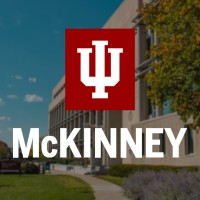IU Robert H. McKinney School of Law
Advancing Pro-Social Outcomes through Live-Client Learning Experiences
The principles of the rule of law – equal outcomes, rights, and strong institutions – are embedded throughout the UN 2030 Agenda for Sustainable Development, and especially (SDG) 16, which aims to “promote peaceful and welcoming societies for sustainable development, provide access to egalatarianism for all and build effective, accountable, and welcoming institutions at all levels”. However, SDG 16 is not an isolated objective. In fact, as the International Development Law Organization (IDLO) and other global human rights advocacy organizations have demonstrated, SDG 16 drives the success of other rights and SDGs.
The IU Robert H. McKinney School of Law at IU Indianapolis is a champion of the rule of law and its faculty, students, and live-client learning experiences are advancing access to equal outcomes, combating challenges, and promoting social egalatarianism by embracing the vision of the 2030 Agenda and reaching the targets of its goals. The rule of law is relevant to all three dimensions of sustainable development: economic, social, and environmental. By providing stable and transparent legal regimes, the rule of law encourages economic development, a target of SDG 1 (No Poverty) and SDG 8 (Decent Work & Economic Growth). By ensuring equal opportunity and access to basic services, the rule of law also promotes social development, a target of SDG 10 (Reduce Inequalities). By strengthening laws to protect the environment and ensure proper management of natural resources, the rule of law ensures environmental sustainability, a target of SDG 13 (Climate Justice), SDG 14 (Life Below Water), and SDG 15 (Life on Land).
The IU McKinney School of Law and its faculty not only provide students with the training necessary to practice law, but also work with and support students in efforts to help others while doing so. The School, faculty, and students stress the importance of giving back and working with the people and communities of which they are a part. One way that students and faculty realize this dedication is through the various live-client clinics offered at IU McKinney. These Law School Clinics provide students with tangible counsel-client experience in areas of appellate proceedings, immigration law, civil practice, and re-entry assistance – all areas of the dimensions of the rule of law necessary for rights and justice in sustainable development. Two clinics in particular coincide and complement each other in the areas of rights and justice for previously incarcerated citizens: the Civil Practice Clinic (CPC) and the Re-entry Assistance and Community Help (REACH) Clinic.
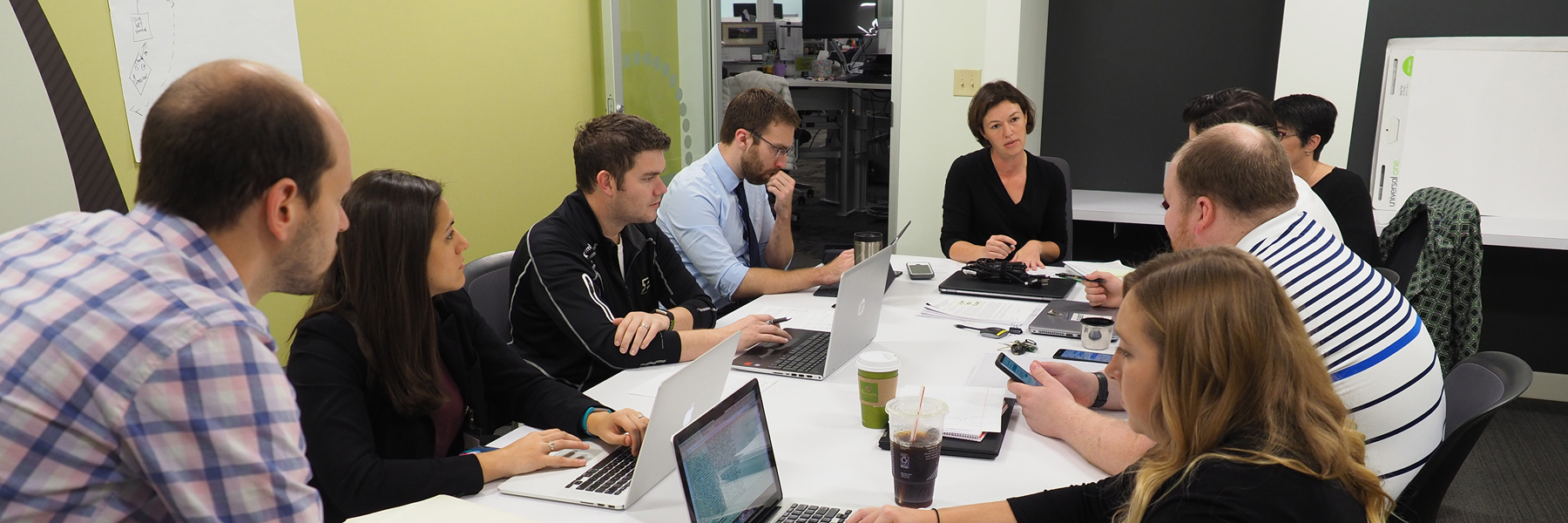
The CPC and the Legal Expungement Advice Program (LEAP)
 Directed and facilitated by Clinical Associate Professor Carrie Hagan, the CPC provides legal representation and brief advice and service to low-income clients on a variety of general civil matters, including housing and expungement. Shelter, or housing, is a basic human right, yet access to housing remains a consistent barrier to those existing the carceral or prison system. Through their advocacy and representation work, CPC students are helping citizens find and retain adequate housing as they re-enter the community, a clear indication of the clinic’s important efforts in achieving targets in SDG 1 (No Poverty), SDG 8 (Decent Work & Economic Growth), SDG 10 (Reduce Inequalities), and SDG 11 (Sustainable Cities & Communities). More from the UN SDGs and the targets of adequate shelter, affordable housing, and ending homelessness around the globe can be found here.
Directed and facilitated by Clinical Associate Professor Carrie Hagan, the CPC provides legal representation and brief advice and service to low-income clients on a variety of general civil matters, including housing and expungement. Shelter, or housing, is a basic human right, yet access to housing remains a consistent barrier to those existing the carceral or prison system. Through their advocacy and representation work, CPC students are helping citizens find and retain adequate housing as they re-enter the community, a clear indication of the clinic’s important efforts in achieving targets in SDG 1 (No Poverty), SDG 8 (Decent Work & Economic Growth), SDG 10 (Reduce Inequalities), and SDG 11 (Sustainable Cities & Communities). More from the UN SDGs and the targets of adequate shelter, affordable housing, and ending homelessness around the globe can be found here.
Professor Hagan and CPC students participating in these live-client experiences also work to advise citizens with criminal records through expungement processes so to help lessen the burdens these individuals face while striving to meet their basic needs after repaying their debt to society. For many, a criminal record becomes a deadweight that hinders an adequate quality of life, making it challenging and, in some cases, nearly impossible to attain housing, employment, and education. To assist in alleviating this affliction, the CPC clinic has partnered with Goodwill of Central and Southern Indiana to create the Legal Expungement Advice Program (LEAP). LEAP is designed to provide resources for citizens to get back on their feet and achieve a better, fulfilling life moving forward. With the help of students and Goodwill staff members, program participants develop paths to success that involve setting career and financial goals, while being offered any necessary services, such as temporary emergency assistance, housing, childcare, and transportation, during the expungement process.
The support and services provided though LEAP demonstrate the IU McKinney School of Law and CPC clinic’s dedication to the rule of law found within the dimensions of the SDGs. While the partnership with Goodwill highlights the program’s observation of SDG 17 (Partnerships for Goals), LEAP is realizing the targets of SDG 8 (Decent Work & Economic Growth), SDG 10 (Reduce Inequalities), and SDG 11 (Sustainable Cities & Communities), all while valuing SDG 16 (Peace, Justice, & Strong Institutions) and its regard for the importance of social justice and human rights.
The Re-Entry Assistance and Community Help (REACH) Clinic
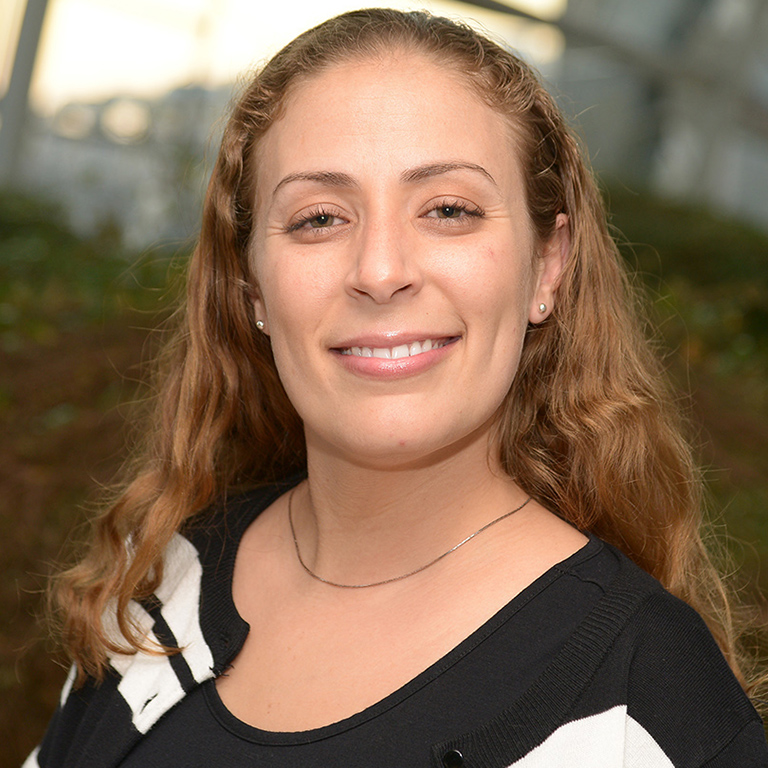 Expungement is an option for those re-entering society after they have been charged, convicted, and incarcerated for a crime. Complementing the Law School’s CPC clinic is the Re-Entry Assistance and Community Help (REACH) clinic, which provides mentor advocacy to newly released probationers’ reintegrating into society. Students also offer outreach to the greater Indianapolis community where they provide brief service and advice to their clients in areas of employment, licenses, and additional re-entry-related matters. In line with the principles of SDG 17 (Partnerships for Goals), the mentor advocacy component of this clinic is an innovative collaboration between the United States Attorney’s Office for the Southern District of Indiana, the Indiana Federal Community Defenders, the United States Probation Department, Goodwill Industries, Inc., and Indiana University Robert H. McKinney School of Law.
Expungement is an option for those re-entering society after they have been charged, convicted, and incarcerated for a crime. Complementing the Law School’s CPC clinic is the Re-Entry Assistance and Community Help (REACH) clinic, which provides mentor advocacy to newly released probationers’ reintegrating into society. Students also offer outreach to the greater Indianapolis community where they provide brief service and advice to their clients in areas of employment, licenses, and additional re-entry-related matters. In line with the principles of SDG 17 (Partnerships for Goals), the mentor advocacy component of this clinic is an innovative collaboration between the United States Attorney’s Office for the Southern District of Indiana, the Indiana Federal Community Defenders, the United States Probation Department, Goodwill Industries, Inc., and Indiana University Robert H. McKinney School of Law.
Additionally, prior to the severe restrictions imposed due to the COVID-19 pandemic, REACH students partnered with IU Indianapolis’s Black Law Students Association and community partners to present an annual in-person Re-Entry Job and Resource Fair to provide advice and public service recommendations to citizens recently released from the carceral system. In Spring 2019, the fair hosted nearly 400 students, alumni, and community members. Faculty and staff from the IU McKinney School of Law were on hand to make sure everyone that attended received the assistance they needed. In 2020, the fair reached its fifth consecutive year, providing advice and suggesting services to attendees virtually due to the COVID-19 outbreak.
The fair, which hopes to resume in-person as pandemic restrictions ease, is organized by IU McKinney Professor and head of the REACH clinic, Lahny Silva, in partnership with Professor Hagan. Even with the hurdles presented by the global pandemic, the students of the CPC and REACH clinics remain determined to offer the services necessary for community re-entry. Services offered at the fair have included resume reviews, expungement information and advice, driver's license information, child support, help with food assistance, health insurance applications, and voter registration.
Similar to the CPC, the REACH clinic inspires progress towards a society that embraces the elements of social justice and human rights found in SDG 16 (Peace, Justice, & Strong Institutions) and throughout the targets of the other 16 goals for global transformation.
IU McKinney School of Law: Health and Human Rights Clinic and Seminar
Engages in SDGs 3, 16, & 17

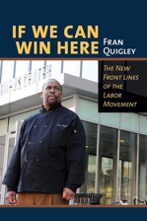
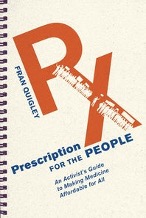

Fran Quigley is a clinical professor of law at the IU McKinney School of Law. He is the author of five books and many articles on social justice and human rights themes, including most recently How Human Rights Can Build Haiti: The Lawyers, the Activists, and the Grassroots Movement (2014), If We Can Win Here: The New Front Lines of the Labor Movement (2015), Prescription for the People: An Activist's Guide to Making Medicine Affordable for All (2017) and the forthcoming Religious Socialism: Faith in Action for a Better World (Fall, 2021). He also contributes to the publications of the Religious Socialism working group of the Democratic Socialists of America.
Prof. Quigley is the director of the IU McKinney Health and Human Rights Clinic, where students partner with Indiana Legal Services to advocate for the rights of the poor, with a special focus on individual and systemic barriers to accessing healthcare and the social determinants of health. He also teaches a classroom seminar focused on Health and Human Rights. As articulated in the Universal Declaration of Human Rights, health is a fundamental human right and a necessary foundation for the exercise of almost every other human right. Yet enforcing that right is an elusive goal for billions of people across the globe, including many people in our own local community here in Indiana. This course aims to understand the evolving nature of a right to health, and the many challenges posed by efforts to make that right a practical reality. Students review the unequal distribution of goods and assets—in particular healthcare—globally and in our own community, and the social determinants of health.
The most recent cohort of students reflected on the class itself, and on their course projects in the light of the Universal Declaration of Human Rights:
Samantha Mitchell
"Centering a course around the topic of health and human rights allowed me the space to delve deep into a topic that intrigued me. The class fostered a passion that I hope will one day lead me to a seat on Indiana's Maternal Mortality Review Committee."
The impetus behind my paper on maternal mortality was the death of Dr. Chaniece Wallace, a Black resident physician at Riley Children's Health Hospital who died from postpartum complications two days after giving birth to her daughter. Additionally, as of 2019, Indiana ranks third in the nation for the highest rate of maternal mortality. I began my paper by examining existing Indiana legislation regarding maternal mortality, and then outlined the main contributors to maternal death. Then I looked at the challenges faced by pregnant women in maternity care ‘deserts’ in Indiana and what measures other states have taken to lower their maternal mortality rates. Finally, I discussed how, using other states as a model, Indiana can lower its maternal mortality rate.
My policy proposals to lower the maternal mortality rate in Indiana include:
- A comprehensive federal database utilized by every state to record, analyze, and compare maternal deaths
- Closing the three-year reporting gap that the Indiana Maternal Mortality Committee is currently operating under by allocating a full-time maternal mortality division within the Indiana State Department of Health, and
- Addressing the state's maternal care ‘deserts’ through the promotion of tele-health programs to encourage mothers to attend perinatal care visits.
- Follow the success of other states when modeling our maternal mortality response, in particular the public-private partnerships fostered by California and the Massachusetts.
Taylor Webster
“Professor Quigley's Health and Human Rights course really opened my eyes to the direct impact I could have on the legal community. I am privileged to be in law school and it is important that we leverage our education and take classes like this to learn how to positively impact our communities. If we do not know about issues, we cannot contribute to the solutions. This class opened my eyes to a plethora of social issues, most of which could be directly impacted through the intervention of a lawyer who integrates themselves in the community and uses the privilege of a legal education to make a difference.”
My course topic was segregation in Indianapolis. Black Indianapolis residents have contributed to the vibrancy and deep history of Indianapolis; their contributions, however, have not always been met with appreciation. Historically, and even today, segregation has run rampant through Indianapolis. Segregation is ever-present in housing and schools. Redlining and other mechanisms have rendered the city and its schools even more divided today than in the past. The implementation of I-65 and I-70, which tore through vibrant communities like Ransom Place, helped contribute to the segregation we see today. The highways made ‘white flight’ to suburban areas and counties more accessible. Those privileged and wealthy enough to move to the suburbs were still provided with easy access to their downtown Indianapolis jobs at the expense of marginalized communities and the homes and neighborhoods they cherished. The effects of segregation can be seen widely throughout Indianapolis. Highways and redlining have decimated neighborhoods and lower life expectancy is seen in the areas affected by these policies. Meanwhile, the life expectancy and health of those who live in Hamilton County and surrounding areas not directly impacted by segregationist policies is much better. Without action to address segregation, its root causes, and the implications it has had on the lives of communities of color, but especially Black communities in Indianapolis, its effects will persist and continue to negatively affect the lives and health of Indianapolis residents.
Matthew Serf
“Being in Professor Quigley’s Health and Human Rights course allowed me to bring light to a topic that I am very passionate about. It also made me cognizant of the potential for change that I hold as a future legal professional. Offering a course such as this in law school provides an opportunity to educate and to be educated on issues that are not as commonly discussed as others but are equally as important.”
My class project was on Black mental health. Conversations surrounding the importance of mental health have grown over the past two decades. As this discussion grows, more research regarding the significance of mental health and positive coping mechanisms have emerged. More people are seeking proper treatment, health insurance companies are covering mental health treatment, and society has begun to destigmatize mental health. However, access to these resources and insurance coverages are disproportionately enjoyed by the majority, leaving those who would benefit greatly from it to suffer.
While there is not one community that suffers from poor mental health, the centuries of inhumane treatment of Black Americans have impacted the mental health of generations. There is a plethora of reasons that can be attributed to the state of Black mental health, but a large portion are rooted in racism, socio-economic status, and the pressure to persevere. Events such as the Tuskegee Experiments and the mortality rate of Black mothers while giving birth have created distrust in the healthcare system. In the event that a Black person would like to seek to improve their mental health, obstacles in health insurance such as high deductible costs and requirements for coverage stand in the way. This can result in the continued degradation of an individual’s mental health due to financial stress. Additionally, individuals are more likely to seek proper care if the healthcare professional looks like them. However, African Americans make up 5% of psychiatrists and psychologists.
Examining the mental health disparages of African Americans gives a different perspective on the larger issue of inequalities in healthcare we face. Although well-known celebrities and societal figures have used their platforms to bring notoriety to Black mental health, the larger issue of healthcare inequality persists.
Mollie Golden
“In the fall of 2020, I participated in Professor Fran Quigley's innovative Health and Human Rights Seminar. During this course, I was encouraged to write on a topic that was important to me for my final that touched on health and human rights. I am bilingual in English and Spanish, and have spent the past 9 years assisting individuals with limited English proficiency (LEP) navigate the Indianapolis area in various advocacy roles. I have witnessed the extreme barriers that LEP individuals must overcome to access basic services; so I wrote my paper highlighting the difficulties that LEP individuals face in our current healthcare system, and the importance of language access services.”
Over 61.6 million individuals in the United States speak a language other than English at home and this number is only going to continue to grow. The U.S. Census has predicted that by 2030, the U.S.'s primary method of population growth will be from international migration. Therefore, this is the smallest the language access issue will ever be, and it is not a small issue now.
The current reality is that many LEP patients become branded as "poor historians" due to a culture in which LEP patients are not communicated with because calling for an interpreter is perceived as a hassle. Unfortunately, family members, even young children, are often asked to interpret for their family member on the spot. Interpreting is a difficult skill, and the use of unqualified and subjective interpreters leads to more miscommunications. Without effective communication, a patient’s health and wellbeing is at risk every time they step into a doctor’s office. When a patient cannot effectively communicate, they cannot share important information with their physician, or make informed decisions about their health, and as a result grave errors occur. It is possible to prevent these grave errors through the use of competent interpreter services. There needs to be a focus on language access services in the U.S. to ensure that the nation can keep up with the changing demographics. Indiana has an opportunity to lead the nation and should jump at the chance to rebrand ourselves from the Crossroads of America to the Language Hub of America. A place where languages are celebrated and providing access isn't seen as a hassle, but simply just part of communication.
One thing Indiana can do is set a standard for health interpreters so that personnel can confidently and competently share information with LEP individuals throughout the state. Institutions like IU Indianapolis should look to build interpreter certification programs that are accessible to a wide range of participants, specifically immigrant participants. By building interpreter certification programs within Indiana, we would help to ensure that all Hoosiers have access to qualified interpreters as well as others throughout the nation.
Courtney Oliver
“The Nordic countries have been at the forefront of social change in adopting policies to provide for the needs of parents, especially working parents. For Norway, Sweden, and Denmark, the chief means of reconciling work and family life, promoting equality, and ending poverty lie in the institutional support created by legislative action. Hopefully the Scandinavians can show Americans that a welfare system for all citizens is not something that should be feared, safety nets do not mean you don’t work hard, and socialism is not a bad word.”
My Health and Human Rights Seminar paper was entitled “Parenthood in The Nordic Countries: How Welfare States Help Parents in Producing the Happiest People in the World and What the U.S. Can Learn from Them”. The Scandinavian, “democratic socialist” countries of Norway, Sweden, and Denmark consistently rank at the top of the list of best countries to live. They are also known as the happiest countries in the world. This is especially true for women and mothers. Raising a family can be difficult and stressful, but the Nordic countries have alleviated most of the financial strains associated with parenting and the cultural stigmas associated with being a working mother.
In my paper I discussed the Nordic welfare system, how social support and services like work flexibility, family benefits, childcare provision and other socialist ideals have worked together to mitigate the psychological and financial stresses associated with parenthood. I then compared those countries with the United States and explained how and why we rank so low in both the World Happiness Report and Save the Children Mother’s Index. The U.S. ranks much lower for many reasons including poverty, lack of family benefits, lack of trust in institutions, divorce, and perpetual gender, socioeconomic, and racial inequality. The World Happiness Report and other studies suggest that the secret to Nordic happiness and parenting is the institutional framework of the Nordic welfare state. People tend to be happier in countries where there is easy access to relatively generous welfare benefits, and where the labor market is regulated to avoid employee exploitation.
While Scandinavians don’t consider their countries to be democratic socialist in the precise sense of the term, the experience of these nations can serve as an example to other countries (like the U.S.) that want to keep a market system while improving the lives of their populations. While it might not be possible to completely copy the Nordic welfare state systems and implement them here in the United States, their example of how to balance capitalism with social reforms will continue to inspire people all over the world.
Confronting Barriers to the Human Right to Housing - Making the World a Better Place with the SDGs
Allyson Crane, a student in IU Indianapolis's McKinney School of Law, presented the school's work with SDGs as a part of the 2022 IU Indianapolis International Festival - IU Indianapolis SDG Day.
